McNeese’s Dr. Mark Merchant
Story by Karla Wall • Photos by Jody McFarlain
When McNeese State University chemistry professor Dr. Mark Merchant was about 12, he was fishing with his grandfather in the bayou when he saw an old alligator lying on the bank. Merchant noticed the old gator was missing a limb.
Even at that young age, Merchant didn’t just look at the gator and think how neat the encounter was. Always interested in “all kinds of science,” he says, he’s always thought, “That’s pretty neat. How does it work?”
Merchant realized that despite the bacteria- and fungus-laden environment gators spend their days in, and despite their aggressiveness and tendency to defend their territory to the point of extensive injury, including the loss of limbs, the prehistoric-looking animals don’t die of infections. Merchant’s spent his professional career finding out why. He’s also studied whether what makes the gators’ immune systems so efficient can help humans combat infection.
Merchant’s love of science led him to a dual bachelor’s in chemistry and biology from Lamar University in 1988. He went on to earn his PhD in biochemistry and biophysics from Texas A&M in 1992. It wasn’t until he joined the faculty of McNeese in 2002 that he began to seriously study alligators and their immune systems.
“Immunity is in the blood,” he explains. “What we did was caught a gator, drew blood, and isolated the serum. And we found that there were very strong antibodies. There was a broad range of antibody activity.”
Alligators’ immune systems, according to an article in a publication from the Louisiana Experimental Program to Stimulate Competitive Research, “utilize a unique antimicrobial peptide mechanism to combat bacteria, fungi and viruses.”
Simply put, Merchant isolated the serum in the gator blood and extracted proteins from that serum. He found that those proteins target viruses and bacteria in a different manner than antibiotics do in humans. Antibiotics attack the enzymes that allow for the bacteria’s cell wall growth. The antimicrobial peptides Merchant found in alligator blood samples cause the cell wall membrane of bacteria to rupture, not only preventing or limiting infection, but limiting the bacteria’s ability to adapt or mutate.
Merchant says it’s a defense mechanism the alligator has developed over millennia living in swamps and bayous.
“Alligators have been around about 200 million years,” says Merchant. “They’ve put evolutionary pressure on themselves. They’re aggressive, they’re territorial, they have dangerous weapons and they live in a very bacterial environment.” There are only three ways, he explains, that nature can deal with that. “First, have them stop fighting — that didn’t happen. Second, have them move to a cleaner environment — they didn’t. Or third, evolve the immune system to deal with it. And over 200 million years, through natural selection, that’s what has happened.”
Those proteins, Merchant found, killed a variety of bacteria, including MRSA, or methicillin resistant staphylococcus aureus. It also killed almost all strains of the candida albicans yeast, which has caused infections in AIDS patients and transplant recipients.
Of course, it’s not as simple as injecting a bit of alligator blood into humans to boost immunity. If a person were injected with alligator blood serum, Merchant says, the body would recognize it as a foreign substance and fight it (meaning you’d be very, very ill). Applications for humans may still be a way off, but Merchant hopes his research can lead to new antibiotic drugs to fight infection in humans. He says perhaps the first and most probable application will be a topical cream used to treat skin infections in burn victims.
“I don’t know if (my research) will result in an antibiotic therapy for humans,” Merchant admits.
But it’s already proven a promising alternative to the use of antibiotic supplements in feed given to weanling pigs.
Merchant says MSU Agriculture professor Chip Lemieux, who’s a longtime friend, approached him one day about the possibility of using gator blood to develop an alternative to antibiotics in pig feed.
“Weanling pigs are taken from their mothers prematurely,” explains Merchant. “It’s done in order to feed them a high-nutrient diet and to make sure the mother goes back into reproductive cycle as soon as possible, for financial reasons.”
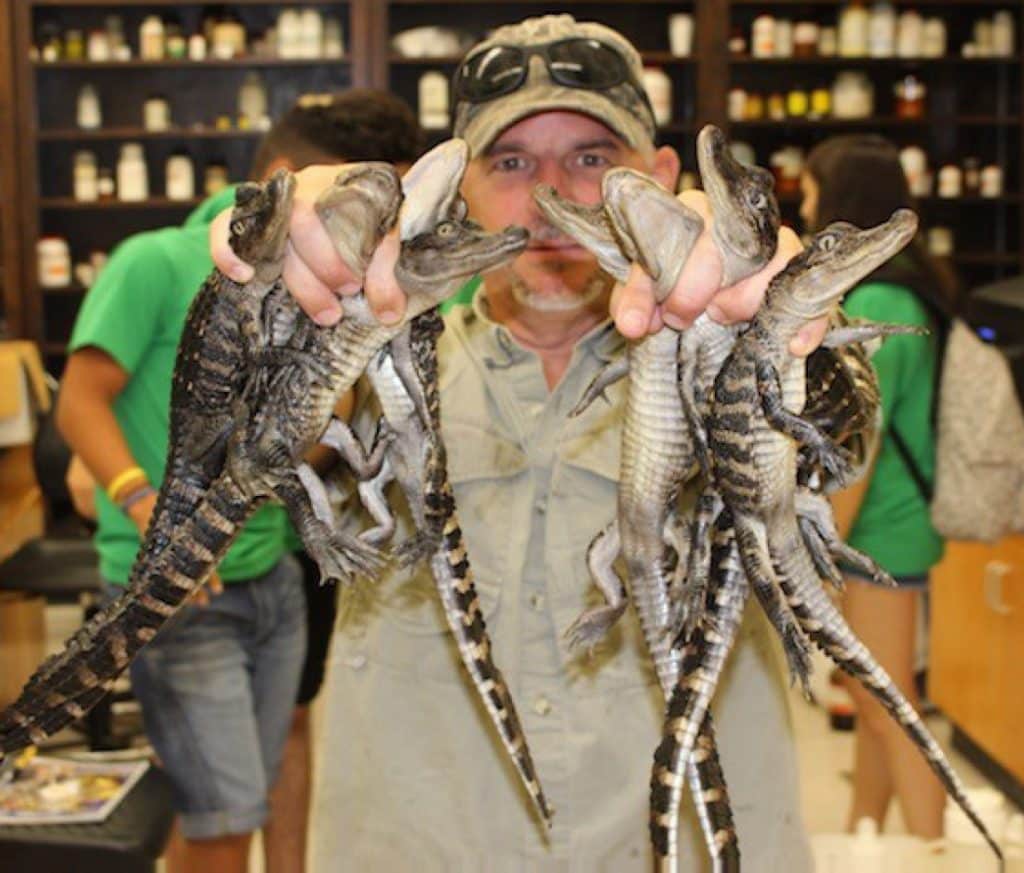
“There’s a lot of stress, which leads to immunosuppression,” says Merchant. “That leads to low weight, infection and death. So antibiotics are given.”
And that can be a problem for the humans who consume the meat.
“We don’t want to be eating antibiotics,” Merchant says. That leads to the mutation of bacteria and viruses and the rise of mutations that antibiotics can’t handle.
What Lemieux wanted to see is if adding a supplement formed from alligator blood to weanling pigs’ diet could give them the same protection from infection alligators have without the use of antibiotics. Merchant told Lemieux he wasn’t too hopeful that anything would come of it.
“But we hit a gold mine,” Merchant says. The supplement worked. Merchant and Lemieux received a patent on their supplement in 2019 but have yet to market it.
Handling gators is dangerous, Merchant says. He’s been around the animals his entire life and knows that. But he also knows how gators react and how they move.
“I know what to do and what not to do,” he explains.
Merchant says that when dealing with a young alligator 5 feet in length or less, he’ll simply grab it by the neck. “For anything over 5 feet, I’ll use a noose, one like that used by animal control.”
Once the gator is captured, the first order of business is to tape its mouth shut. The muscles that an alligator uses to open its mouth are much weaker than those used to snap the jaws shut. So simple tape is enough to keep it from opening its mouth.
“Of course, you also have to be careful of the tail,” Merchant says.
Merchant’s not only worked with alligators, but crocodilian and reptile species of all kinds, from Komodo dragons to turtles to caimans (he spent some time studying them and working with them in Argentina). “I’ve also studied antibodies in scorpions and dragonflies,” he says.



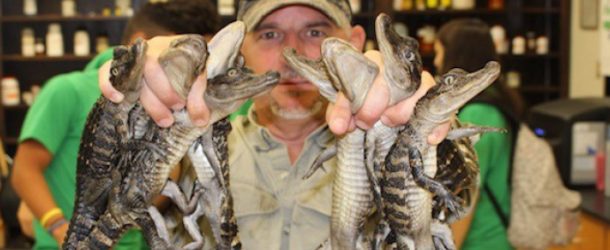
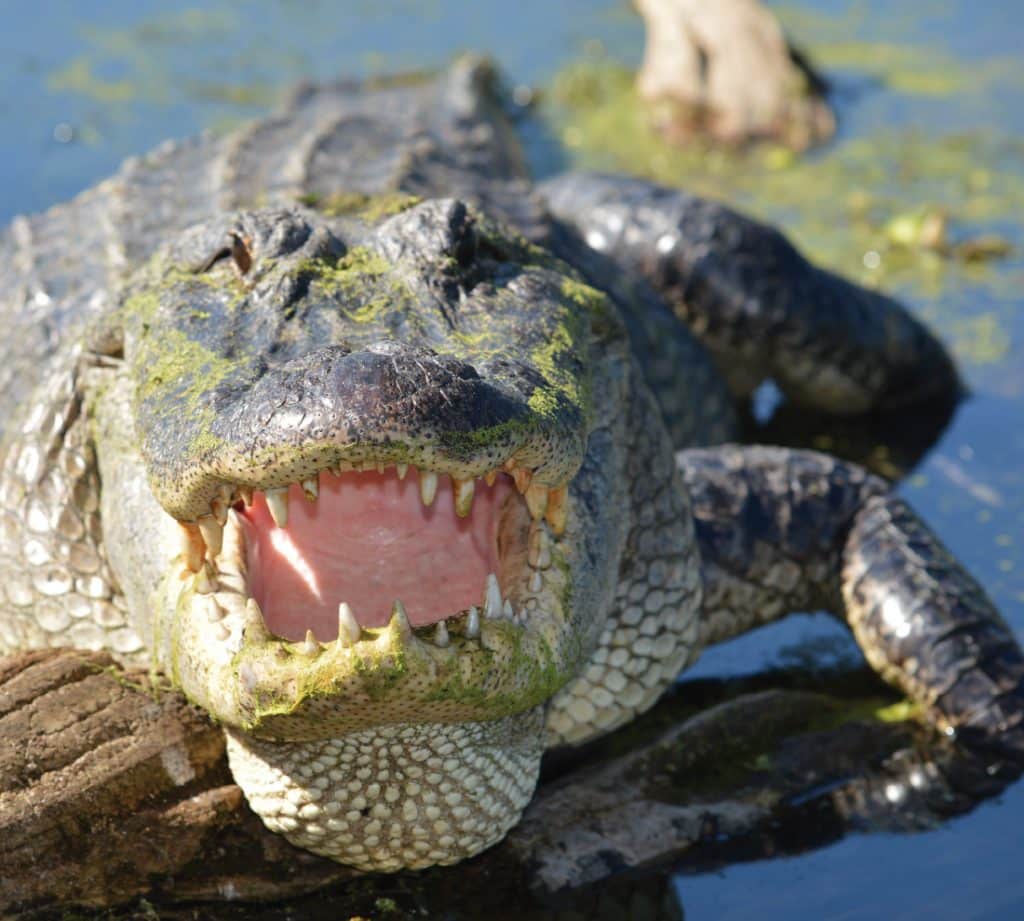
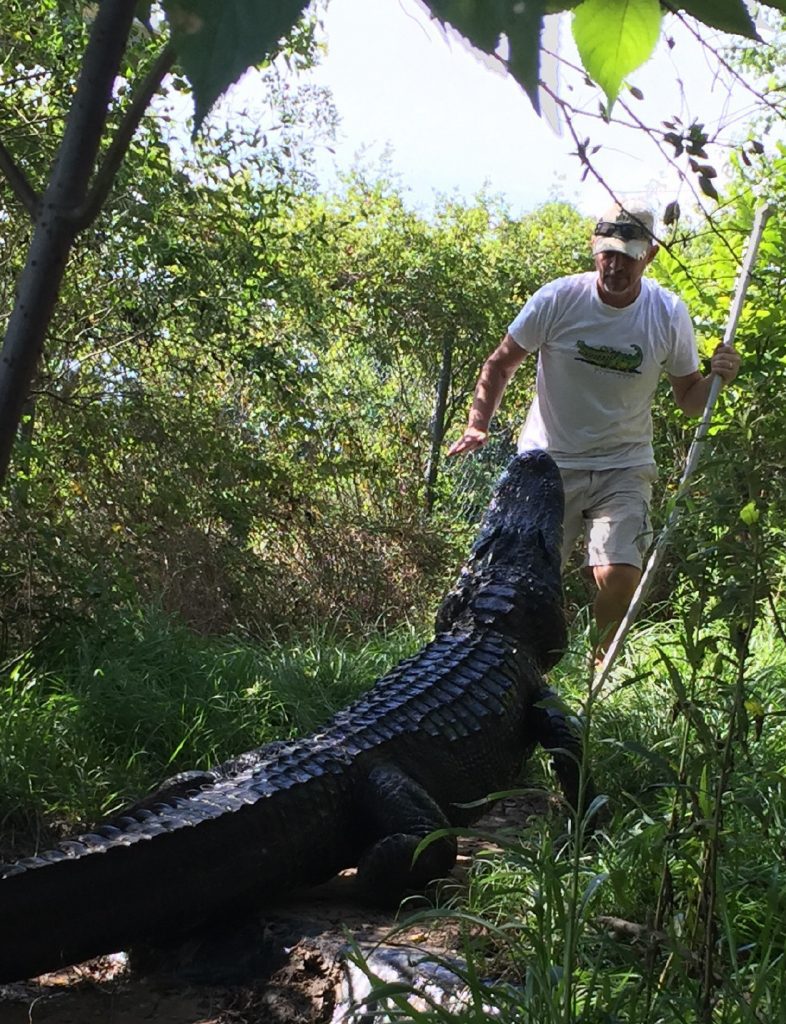
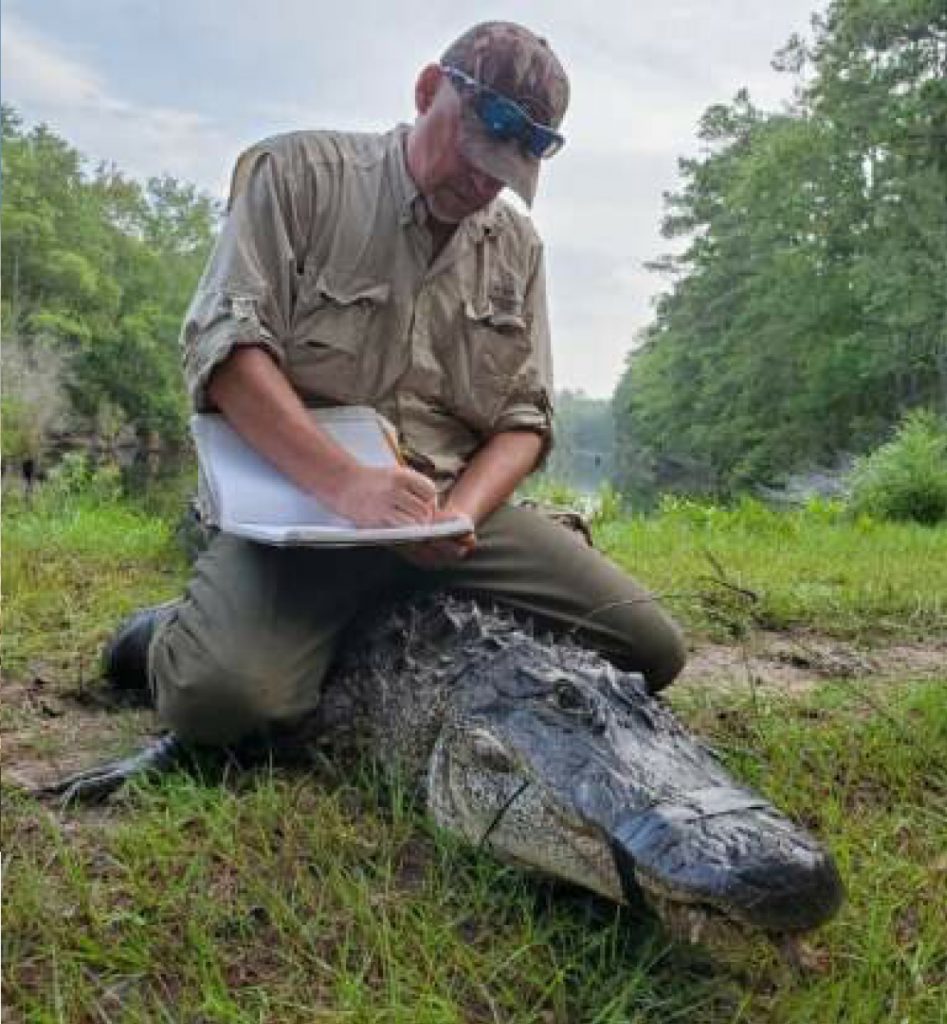












Comments are closed.